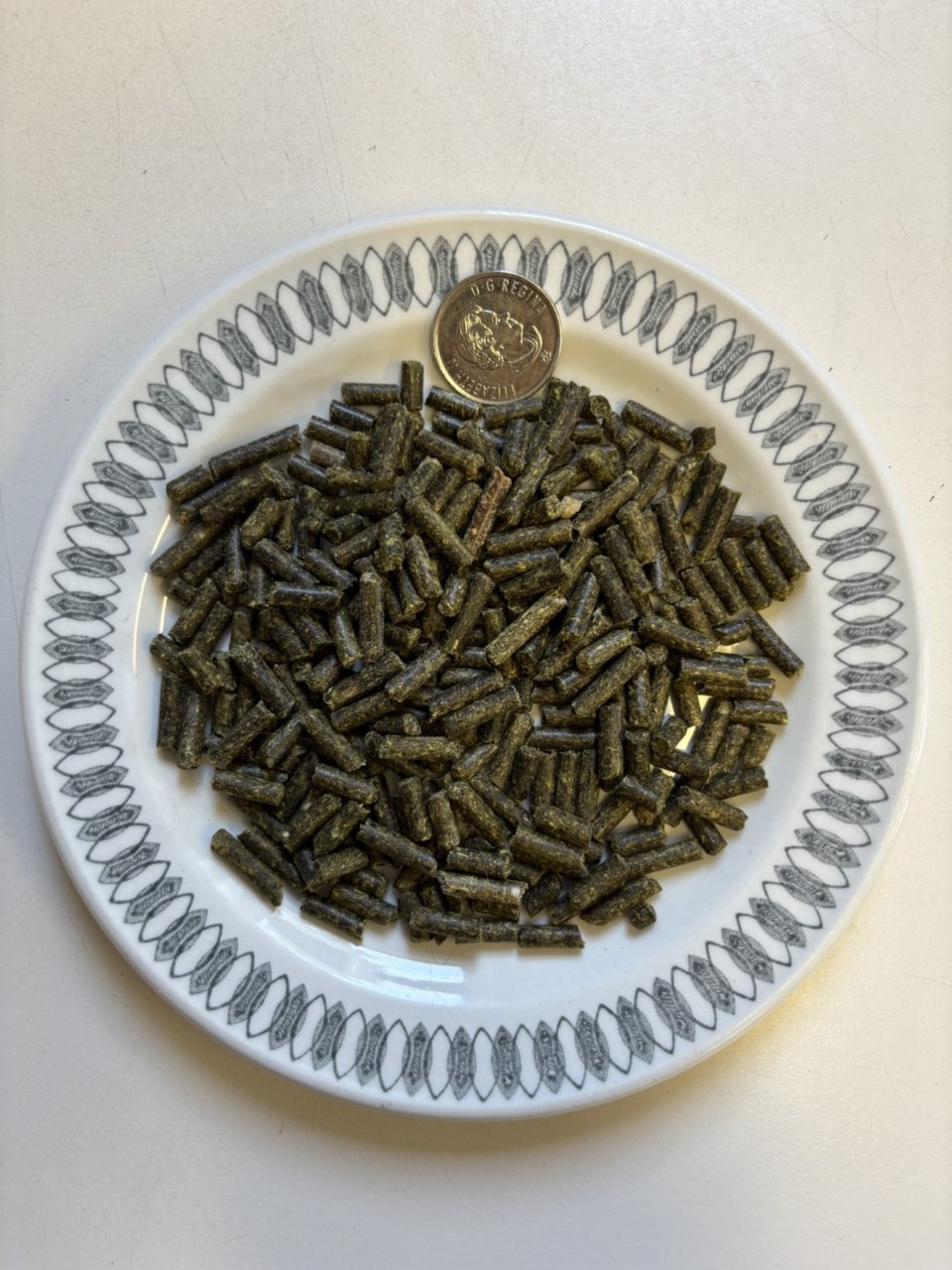YORKTON - What do you think of when you hear the words “alfalfa pellets”? Many of us think of cattle feed, but many gardeners think of garden gold when they hear those words!
Have you ever tried alfalfa pellets in your garden? We have not, and the advantages of alfalfa are new to me, so it’s time for some homework!
One of the main features of alfalfa pellets is that they are organic and slow-release, so they break down naturally in the soil as they feed the plants. They are full of nitrogen, one of the three top nutrients for healthy plants.
Just as refresher: what do the numbers mean when we buy fertilizer? They stand for the percentage of the three nutrients in the mix: nitrogen (N), phosphorous (P), and potassium (K). These are the three main nutrients. And what do they all do? Nitrogen gives healthy and robust foliage; phosphorous works underground and promotes good root growth, and helps the plant produce fruit and flowers. Potassium helps growth and plant strength. If you see a fertilizer labelled “10-10-10” this is called a balanced fertilizer, meaning the product has the same amount of each nutrient and will help all aspects of the plant. If you are growing something where you want more nutrients to go towards flowers or fruit, go to a higher middle number, because phosphorous is the nutrient you want.
Here’s a two-dollar word. Triacontanol. It is a plant growth regulator found in alfalfa pellets, and is said to help boost yield and plant vigor.
Because alfalfa pellets are high in nitrogen, they will certainly add a boost to the foliage of plants, and while it does so, that helps to make the leaves healthier and work harder for the plant’s overall health.
How do we use alfalfa pellets? We can mix them in with the soil when we are planting. Or, because they are organic, we can just top-dress the soil after planting. (another review: to “top-dress” means to add a thin layer or organic matter, whether compost or other organic matter like the alfalfa pellets, on top of the soil). I read that we can also mix alfalfa pellets into our compost, which will add the nitrogen necessary for good compost.
The pellets have a lot of good things going for them because they are organic and will break down naturally, but we still have to remember that they provide just one component of the nutrient trio that gives us good healthy plants. However, if we keep that information in mind and use it as just one part of our plant nutrient care, we’ll have the results we want. Gardeners don’t want to give up plant yield for a healthy plant of foliage. All the nutrients must balance and work together.
Another thing to think about: if you have tested your soil and it is low in nitrogen, then alfalfa could be very beneficial to your garden, bringing it up to healthy levels again. And remember to read up on the “how-to” of healthy soil, one that is rich in beneficial organisms. Soil gives and gives but it also needs to be replenished with compost and good soil care practises.
As an adventurous gardener, if you want to give alfalfa pellets a try, the hort society has a limited number of bags of alfalfa pellets for sale. Talk to any of our members for more information.
The next meeting of the Yorkton and District Horticultural Society will be on Wednesday, May 21 at the Yorkton Public Library. Our topic will be air plants and succulents. Thank you to our friends at YTW for their fine work! Have a great week!






